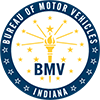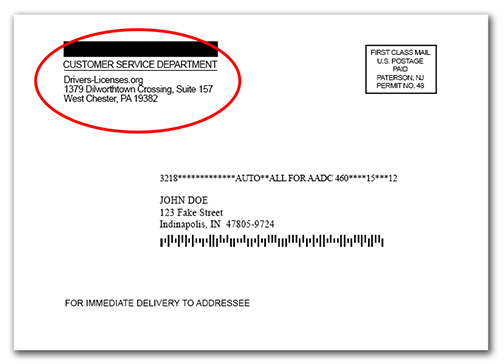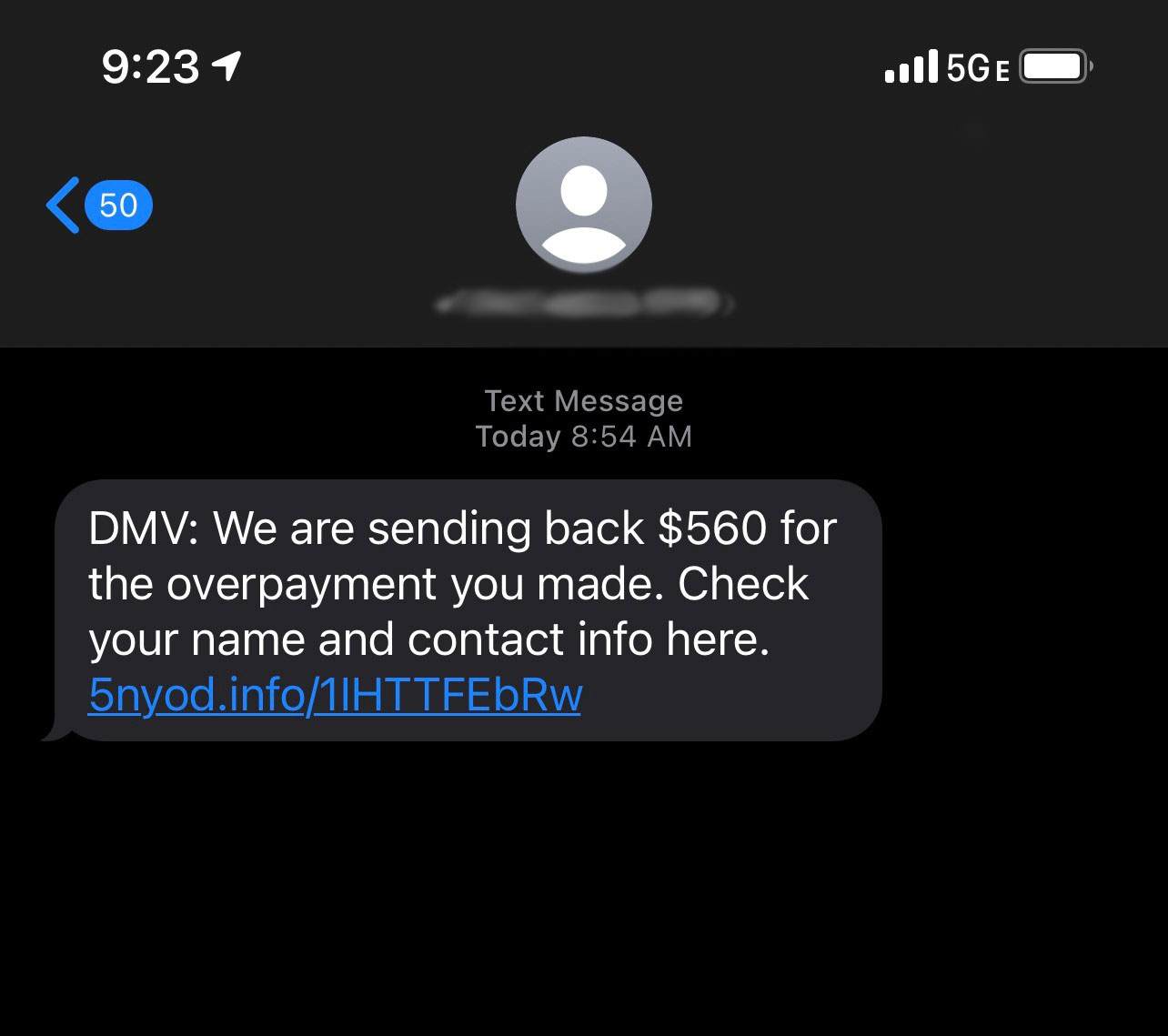If you have received a call or information by mail and you are unsure if it came directly from the Indiana BMV, contact the call center at 888-692-6841 or submit an email to verify its authenticity.
Click on the icons below to view examples of recent fraudulent activity:
Malicious Websites
Insurance Scam
Flood Vehicles
Real ID Documentation Scam
Fraudulent IDs and Licenses

Text Message Scam

Traffic Violation Email Scam
Malicious Websites
Customers often believe transactions with the Indiana BMV can be completed through various websites. This is incorrect. Anyone attempting to complete a transaction should only do so by visiting IN.gov/mybmv or myBMV.com or by visiting a branch. The following websites are not affiliated with the Indiana BMV in any way and may contain malicious content:
- indianadriverslicense.org
- www.car-registration.org
- www.DMV.org
- www.DMV.com
- www.drivers-licenses.org
- www.visitmybmv.com
- www.dmvusa.com
Insurance Scam
Flood Vehicles
In times of natural disaster, such as a major flood, surrounding states often fall victim to an increase in fraudulent car sales. A warning from the National Salvage Vehicle Reporting Program (NSVRP)—a leading not-for-profit law enforcement support organization dedicated to reducing auto theft, title fraud, and abuse—states that flooded vehicles are often sold in car auctions to unsuspecting individuals and dealers. These salvage vehicles are not only sold fraudulently, but they are also dangerous to the operator and fellow drivers.
To reduce the risk of unknowingly purchasing a flood-damaged vehicle, consumers should follow these steps prior to making a transaction:
- Ask the dealer to provide a vehicle history report. If the dealer refuses to provide such a report, purchase one yourself. Consumers can obtain a vehicle history report from a variety of sources, such as Carfax, Autocheck, the National Motor Vehicle Title Information System, or the National Insurance Crime Bureau.
- Check the vehicle’s history report to see if there are any reported title brands on the vehicle, such as “salvage,” “rebuilt,” “junk” or “flood damage.” Also note on the report the state or geographic area where the vehicle was last titled or registered to determine if the vehicle was recently located in an area affected by flooding.
- Ask to see the vehicle’s title, or a copy of the title, and check to see if the title includes any title brands, including “salvage,” “rebuilt,” “junk” or “flood damage.”
- Inspect the vehicle closely for any signs of flood damage by checking to ensure all electronic components, including the heat and air conditioning, are operational. Check for any signs of mud or rust anywhere on or in the vehicle, including the engine compartment. Check for discolored or mildewed carpeting. Note whether the vehicle has any odd smells. Be suspicious of a vehicle that smells like mildew. The aroma of heavy disinfectants and cleaners may also be an indicator that someone has tried to mask a mold or odor problem.
- Take the vehicle for a test drive.
- Have an independent mechanic of your choosing inspect the vehicle prior to purchase. Specifically ask the mechanic to check for any signs of flood damage.
If a consumer suspects a recently purchased vehicle was flood-damaged, and such damage was not disclosed prior to sale, the consumer should file a consumer complaint at www.in.gov/attorneygeneral.
For more information, contact the National Salvage Vehicle Reporting Program:
80 Urban Street
Stamford, CT 06905-3965
Phone: 203-975-9889
Email: administrator@nsvrp.org
Real ID Documentation Scam
Zertifica, also known as Vital Records, now facilitates transactions to obtain your birth, marriage, divorce, and death certificates. This website is NOT affiliated with the Indiana BMV or any other State agencies in any way. Please visit your local county clerk or access vital records through the Indiana State Department of Health.
Fraudulent IDs and Licenses
Although a state-issued driver’s license was originally intended only to document a person’s qualification to operate a motor vehicle, it has evolved into the most common identification document used by government and business entities. As a result of the rampant growth of identity theft, use of altered or counterfeit driver’s license has increased as well.
Indiana has enacted stringent requirements regarding the documents presented in order for a credential applicant to prove identity, residency, and lawful presence in the United States. BMV branch associates are trained to recognize counterfeit and/or fraudulent identity documents.
Indiana has also enhanced the security features in all state-issued driver’s license and identification cards to deter alteration and counterfeiting. Law enforcement and other legal professionals may use the Indiana Driver’s License and ID Card Security and Authenticity flyer in recognizing fraudulent Indiana driver’s licenses and identification cards.


